Harshvardhan Navathe
We were talking about eminent Indians who have made a mark in life. It had started with Sachin Tendulkar’s stupendous achievements and then we drifted to other fields. Suddenly, someone asked, “Who is or was Harshvardhan Navathe?”
Nearly everyone had heard the name, but we could not readily recall the field in which he had achieved glory. To help us, our friend said, “I will give you four options and if you get the right answer, you get five hundred rupees”
That hint was enough. Most of us remembered the bright looking young man who had given the right answers to all the fifteen questions and walked away with Rs one Crore, thirteen odd years ago. Someone even remembered the last question which was really tricky. It was:
Q 15. Who among these does the Indian Constitution permit to take part in the proceedings of Parliament?
a) Solicitor General b) Attorney General c) Cabinet Secretary d) Chief Justice
Harshvardhan took his time and analyzed the options. While he was doing that, Amitabh Bhachhan reminded him several times that the wrong answer would take him down to Rs 3.2 lakhs, whilst the right one would get make him the first Crorepati. The hero of the show had the gumption to choose the right response, and ‘lock’ on (b) Attorney General. He received the check and became a celebrity overnight. Quite apart from the fame which he earned this young IAS aspirant had earned a sum of money which I was not able to save in my whole lifetime. It was enough money in the year 2000 to buy 20 kilograms of gold or a decent bungalow in a city. He was the cynosure of all eyes the next day.
Life After Kaun Banega Crorepati
Public memory is short. Within a few days, other events took over. No one seemed to keep a track of what happened to Harshvardhan after that sterling performance. A few years later, an enterprising journalist published the following story in a magazine:
Rs 10 million may have definitely made a difference to the life of this IAS aspirant, son of a retired deputy commissioner of police in Mumbai; but it also turned his life upside down.
Now, as news of the doubling of the prize money on the show creates ripples of anticipation among aspiring crorepatis, Harsh himself is far away. In Edinburgh, UK, to be precise, completing a one year MBA, specialising in marketing and public relations.
While this may have been a lucky break for the 30 year old, the last four years have scarcely been so. Harsh himself is not in India to corroborate this, but those close to him say that Harsh suffered the after effects of his KBC fame while at college in Symbiosis in Pune. Asked out continuously to preside at several functions within and outside college at the behest of the authorities, Harsh was not able to complete the requisite attendance for his last semester – a fact that almost cost him his last term college, leading to severe depression.
Fortunately for the Navathe family, Harshvardhan recovered from his despair and earned admission in a good university in England. He is now a successful executive in a firm and doing very well, even though he does not make news any more. Shakespeare would say, “All is well that ends well!”
When dreams come true in real life…
In an idle reverie, I was browsing through the Internet to see if anyone has tracked the lives of people who win lotteries and sweepstakes. To my amusement, I found that in many cases, most of the winners were unable to savor the fruits of the fortune that fell in their laps. In fact some of these tales make you wish that such a thing does not happen to you. Personally, I would not like my dreams to come true. To give you an idea of what I discovered, here is a summary of ten real life stories tracked by a researcher in the USA. They have been described as ‘lottery losers’.
1. Jack Whittaker won a record $314.9m Powerball jackpot in 2002.
But life since then has been a long list of arrests, lawsuits, broken relationships and even death. In 2007, his then wife, Jewell admitted she wished she had ‘torn up the ticket’.
2. William “Bud” Post won $16.2 million in the Pennsylvania lottery in 1988.
He later described the experience as a ‘nightmare’ and wishes it had never happened – who can blame him after he was sued by a former girlfriend eager to get her hands on the cash and his brother hired a hitman in the hope of inheriting the winnings. He invested in ill-fated family businesses and within a year was $1m in debt. Today he gets by on social security payments.
3. Luke Pittard from Wales won a ‘measly’ £1.3m on the National Lottery.
After the novelty had worn off and the obligatory lavish holiday, wedding and new home were done and dusted, he got bored and returned to work at MacDonalds.
4. An as-yet-unnamed Sicilian won £79m on the Italian lottery in 2008.
Before he or she could even collect the winnings consumer groups were demanding that the windfall be seized by the government. The winner has since gone into hiding, fearing the Mafia will come calling.
5. Janite Lee won $18 million in 1993.
Her generosity in giving money to a variety of political, educational and community causes was commendable – but just eight years later she filed for bankruptcy.
6. Mark Gardiner from London won £11m in 1995.
Thirteen miserable years later, he hasn’t lost his money, but he has lost all his friends – even the ones he treated to new £100,000 homes – and lost touch with his family.
7. Michael Carroll won a £9.7m National Lottery jackpot in 2002.
Since then he has appeared in court more than 30 times and been jailed for drug related offences. In 2008, he admitted that ‘just’ £500,000 of his windfall remained.
8. Willie Hurt won $3.1 million in 1989.
Two years later the money was gone and he was on a murder charge. Hurt spent his fortune on a divorce and crack cocaine.
9. Charles Riddle won $1 million in 1975.
The original lottery car crash, he quickly got divorced, faced several lawsuits and was eventually indicted for selling cocaine.
10. Ken Proxmire won $1 million in the Michigan lottery.
He moved to California, and invested in a car business with his brothers. Five years later, he was bankrupt and back working as a machinist.
*
Prodigals, who did their parents proud…
So much for those who strike diamonds and gold, while playing around in the wilderness. Now, let us turn our attention to the ‘bright’ students who leave everything else and concentrate on studies. The parents do all they can, to help them crack the entrance tests to enter prestigious institution or qualify for the civil services. In the larger cities, there are teaching shops which specialize in ‘coaching’ such students. When the results come out, we see pictures of proud parents and the students in the newspapers. For a moment, it seems that the successful children are all set for very promising careers. Here is how they look:
The next step
The race becomes more interesting from here on. Professional training courses are two to four years long, and the competition is intense. In most cases, medals are awarded to those who top the course. In the Army, the Gentleman Cadet who is adjudged the best is awarded the coveted sword of honor, and for a while, he is on cloud nine. His picture figures prominently in the newspapers and the service seniority is according to the ‘order of merit’ which carries all through the career. Here is how they look on that day:
In a University, the picture looks like this:
This is a picture of a university topper, receiving the gold medal
Life after the medals and awards
Life does not end at the training institution. In fact, it begins there! Some work has been done to try to establish a correlation between the performance at the training institutions and the life beyond learning. Current results seem to indicate that there is no significant relationship between the two. Recently, there was a re-union of a military course which met fifty years after their passing out from the Indian Military Academy, Dehradun. The Cadet who later rose to be the Chief of the Army Staff had barely scraped through the training. In fact about two-thirds of his course-mates had performed better than him. An analysis carried out by a researcher showed that very few winners of the coveted awards have risen to shoulder higher responsibilities in the service. The performance of engineers who topped at the colleges follows the same pattern.
I do not consider myself competent to analyze this phenomenon. But having been associated with Human Resource Development in the Army as well as the Corporate sector, I think the causes for this disconnect can be grouped under the following heads:
-
In some cases, the toppers burn themselves out, in the rivalry for the awards.
-
Success, sometimes, leads to arrogance, and that leads to the fall.
-
With the passage of time a person changes. The intellectual growth is a mysterious phenomenon, and no one has understood it fully. Some people bloom late.
-
Personal circumstances change. A supportive spouse can make a world of difference.
-
You need congenial colleagues and bosses, and for that you have to be lucky.
Of Honors and Awards
Excellence in performance is rewarded all through the life. It affects people differently. Some go chasing it, and end up in utter bitterness if it is denied to them. But I have also known people who shy away from public recognition. Jean Paul Sarte went to the extent of declining to accept the Noble Prize awarded to him. When I was in school I read a dictum which I think is very true. I do not know who said it, and it is not on the Internet, so the words may not be precise.
“Honors and awards distinguish the mediocre. While the Superior are embarrassed by them, the decoration itself is sullied by the inferiors”
Dreams and real life are two different worlds.
I like to quote just one example. Once upon a time, there was a man called Mukesh Agarwal. He was a reasonably successful entrepreneur, who had just one dream: to marry a film actress. And it came true. He got married to the famous Rekha. For a while, he had achieved his ultimate goal. The following pictures say it all.
Mukesh with his wife, Rekha and Hema Malini
The whole world knows what happened next. In less than one year, Mukesh was driven to suicide. It was an unequal match, and the young man did not realize it. Indeed, he paid the price for his lack of understanding life and his grave immaturity.
“…and they did not live happily ever after”
In the childhood we read a lot of fairytales which ended in the prince getting married to the princess, and the story ended with the above five words. In the evening of my life, I find that in the real life, I have never seen it happen. You can gather all the wealth in the world, hold power over billions of people and achieve unbounded glory, and yet, you need to strive for happiness at every moment, Every instant is important, and the struggle every moment. Life itself is a transitory phenomenon, and death is, forever, just one breath away!
Many years ago, I read a book entitled, “The Wisdom of the Vedas” in which there was a verse which said,
“No two moments are linked. Mohan whom you now see is not the same Mohan you met yesterday, or the last year. The visible similarity between the two is illusory in nature.”
At that time I did not believe it. But a few months later, I met a retired general at a social get together who had come to inspect our unit a few months before. The man whom I now saw looked a few inches shorter, and said some things which were very different from the ‘sermon’ he had delivered when he had spoken to us from the podium.
Truth, the whole Truth and nothing but the truth
As I now see it, the world is in a state of ‘dynamic equilibrium’ It is more like a top which is spinning than the table in front of you. The table may seem static. It is not, since it is also in motion, in more ways than one. And the top is static, when it is spinning at its highest speed of rotation. The moment it slows down, it wobbles, and falls to a side. See it, if you like.
And now see how it looks when it siezes to rotate:
This is true of us, too. We are alive only as long as our hearts are beating, the lungs are breathing and all other organs performing their functions. The world has no time for men who rest on their laurels. What you did and achieved many years ago is of no consequence. To earn the respect of the people, you have to do something today…and in fact, now!
How do we distinguish between good and bad?
Let us assume that you are looking for a doctor to treat your child. Will you ask any of the following questions?
-
Which medical school did he attend?
-
What was his percentage of marks in the medical college?
-
Did he win a medal during his training?
-
Does he belong to a family of Doctors?
-
Which hospitals has he worked in?
Chances are that you will not go by any of the above parameters. Perhaps the most important factor is his reputation and empathy. The way he meets you and the compassion in his eyes is more significant than the equipment in his clinic. One doctor whom I respect a lot had a little note on his table, which said,
It is no consolation to the patient that the doctor is right most often.
He wants him to be right this time
The Eighth Deadly Sin
The Holy Bible lists seven deadly sins. These are: Lust, Gluttony, Greed, Sloth, Wrath, Envy and Pride. In my humble opinion, there is one more emotional fault which we need to fight. And that is, “Mood Swings” When you permit yourself to become ecstatic, be prepared for a bout of depression. Only those who are able to contain their joys within limits are able to remain stoic during their sorrows. Said Gautam Budhha,
“Pain is inevitable. Suffering is optional”
Trying to Accumulate Happiness or Health
You can, with hard work and enterprise, earn a lot of money. You can also rise in status to gain control over large numbers of people. You can stack wealth in various forms, and through your societal power, you can become famous, or even be widely acclaimed. The media may follow you like a shadow, but an unfortunate fact of life is that there is no known method of purchasing a ‘fixed deposit’ of happiness or health. It has also been my experience that no amount of wealth is enough to satiate human desire. Just like the jungle fire, the human appetite for treasure is limitless. It is also a fact that those who acquire riches acquire an obnoxious persona. They are similar, in many ways, to a man who is inebriated with an intoxicant. There is an age old couplet written by a saintly Hindi poet:
कनक कनक से सौ गुनी मादकता अधिकाए
यह खाए बौराए मन , वोह पाए बौराए !!!
Hindi word ‘kanak’ has two meanings; (gold and hashish) So this couplet translates to:
Gold is at least one hundred times more intoxicating than hashish.
Hashish intoxicates you if you eat it. Gold does that when you merely hold it!
Even when you look at its picture,something happens, deep within us!
The Gracious Path to Success and Glory
I have absolutely no doubt that people of all ages must strive for excellence in whatever they do. But the pursuit has to conform to a set of principles. If unfair means are employed, one is found out before long. And if herculean effort is put in for the desired results, one is not able to sustain it for long. I also find that those who do not carry a balanced head over their shoulders are unduly dejected when they are not able to attain the goal. Said, Kipling, You need to treat triumph and disaster as imposters of the same genre.
A Tailpiece
The kind of people whom I have admired in life are those lived life with a light hearted tinge. They have left pleasant memories, and I long to meet them. Amongst them was a boy called Malik, who was a student union leader in our college. A happy-go-lucky bloke, he could come out with an original prank in every situation. The last event in the athletics meet was the one-mile race, for which there were no heats. The entry was open to anyone who wished to participate. Malik was healthy to the point of being obese, and was not known to be an athlete. But he put on the right dress and joined the group. It was a nearly four-lapped race, and when it started, Malik took off like a champion, and at the end of the first lap, he was clearly ahead of the rest. And that is where he came out, in great style. He then went over to the commentator and whispered some thing in his ear, and we heard, on the microphone:
मलिक जी थोड़ा ही भागे, पर जितना भागे,अच्छा भागे !


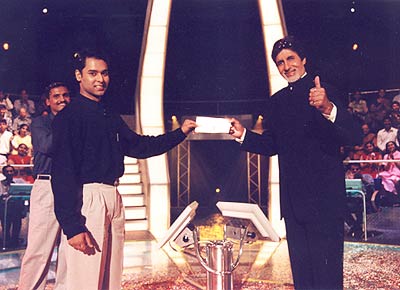
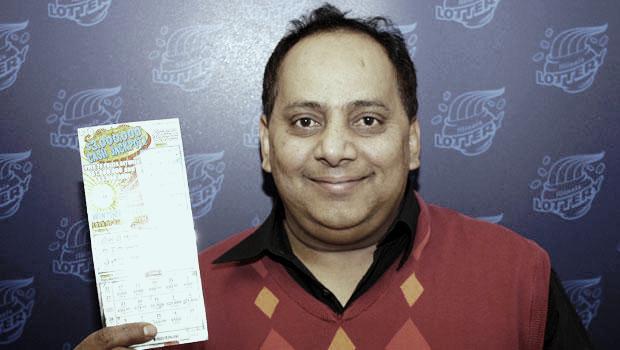
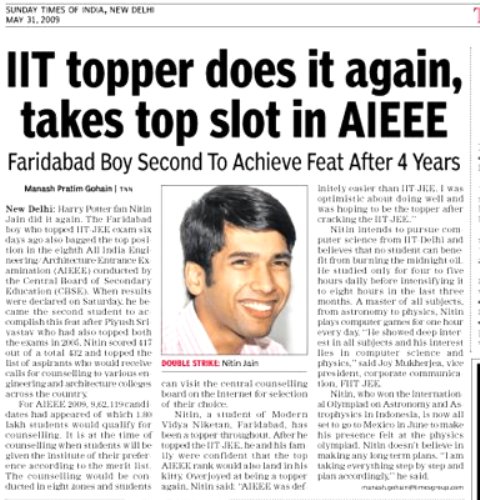
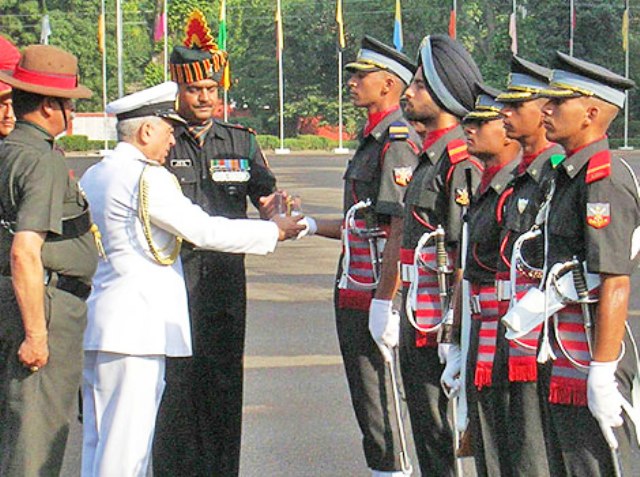
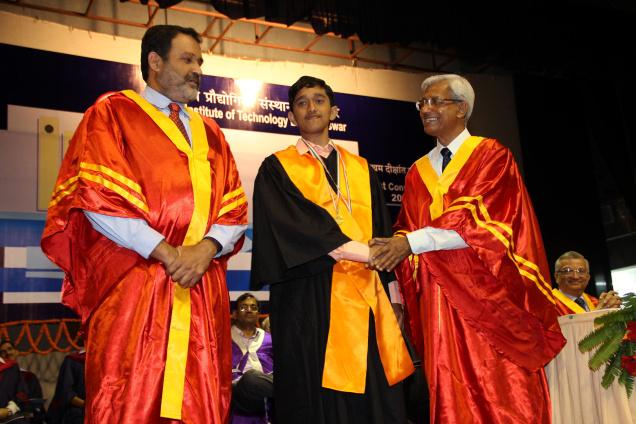



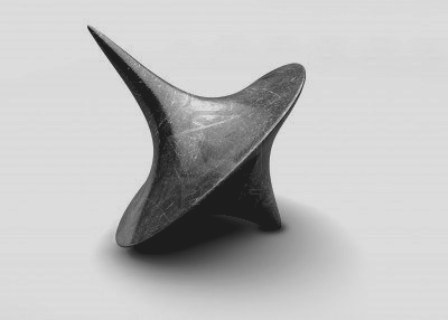






Definitely consider that which you stated. Your favourite justification appeared to be on the internet the easiest thing to take into account of.
I say to you, I definitely get annoyed even as folks consider concerns that they just don’t realize
about. You managed to hit the nail upon the top as well as
defined out the whole thing without having side effect , other people could take a signal.
Will likely be back to get more. Thank you
Great piece Mr. Surjit. Loved it. This should be a chapter in school books, so that each child learns the value of hard work and continued persistence even after achieving their goals. It’s an honour to read your article.
Sandeep,
I am touched by your words.
I am giving below a link to another post. Do tell me what you think of it’
http://amolak.in/web/in-search-of-my-mother-tongue/
Regards,
Surjit
dear sir,
haven’t been regular on net lately. read ur article today. really love ur style of writing. hope to read ur other articles over coming days.
we’ve shifted to Kochi from Port blair and wish to host u if u plan a visit to Kerala.
with warmest regards,
Harman
Dear Harman,
We are glad to learn that you are back on the main land! Welcome.
Have you not visited the North? When you come, do look us up.
Kochi is al lovely place. The Navy has a very nice Officers’ Mess. I went there in 1996. I am sure the Coast Guard are equally well looked after.
I hosted another piece, A Tale of Two Sons” yesterday. Do see it, when you find time.
Love to the Lady and the Children!
Surjit
A GREAT ANALYSIS OF SUCCESS! I PERSONALLY BELIEVE THAT THERE ARE THREE LIVES WHICH ONE LEADS VIZ. LIFE OF SURVIVAL; LIFE OF SUCESS AND LIFE OF SIGNIFICANCE. WE SHOULD STRIVE FOR LIFE OF SIGNIFICANCE AND IF AN ANALYSIS IS DONE THEN WE MAY FIND ONLY 5% OF THE POULATION IN THE WORLD WHO MIGHT HAVE LED THAT LIFE!
I agree with you. But I think 5% is a rather optimistic estimate. The figure is much lower, in my view.
Wish you and your family all the very best.
Surjit
Lovely essay.Enjoyed reading every bit
Dear Ms Neita Saigal,
Thanks.
If you like, contribute a piece for this website.
Surjit
Thanks for sharing these anecdotes and views. I especially loved the last sentence:
मलिक जी थोड़ा ही भागे, पर जितना भागे,अच्छा भागे !
Dear Ritu,
Long since we heard from you. Why silent?
Surjit Uncle
A thought provoking article. Yet, there are exceptions that may be worthwhile a research as well. The burn out is true in all fields of activity; there is perhaps need for setting up new goals in a preferred field of one’s choice periodically, aptly referred to in the article too, in order to achieve continual success in one’s field of work and also to achieve mental and spiritual satisfaction; a task very often not undertaken by many due to financial and social constraints (and due to one’s limitation of enterprising spirit?). Besides, a lottery winner may not actually be endowed with necessary mental and emotional grit that is required to cope with the various pressures that emerge with success (like a sudden financial gain in such cases).
The deep analysis of the subject has greatly added to my insight into human behavior and to a large measure into my knowledge of philosophy of life. A greatly appreciable piece of work for which I congratulate you.
Dear Gen Surjit,
A well researched piece. Enjoyed reading it.
Raj
to me
Dear Uncle,
Really enjoyed reading your beautifully crafted piece. Just wanted to share the shortest story ever written.
(The story he sent is posted elsewhere)
Dr Prakarsh Singh has sent in a story which is believed to be the shortest story ever written. This is how it goes:
A Man in Monte Carlo
February 6, 2013
by Anton Chekhov
A man in Monte Carlo goes to the casino, wins a million, returns home, commits suicide.
——————————————————————————–
About the Author:
Anton Chekhov ( 29 January 1860 – 15 July 1904) was a Russian author, dramatist and physician.
My dear surjit
I thoroughly enjoyed your analysis and thought process based on true facts of life..Life is full of a series of struggles( I would call it Obstacle Course). One,s success in a struggle may be due to a combination of certain favourable circumstances.which may not exist during struggles which may follow. One has to rise to the occasion each time. Very few can maintain that momentum and thus flounder after some time. IMA is a place for impressionists who may fail when hard performance is the requirement through out the service.
Gurdayal
Very appropriately said sir.
Life is a long race. More like a marathon (or much longer than that!) It is not a 100 meters sprint. And those who run it like that, shine for a very short time.
Surjit
Remarkable piece on philosophy of life, Sir. Greatly enjoyed reading it.
Virin
Thanks.
I sometimes wish, I could abide by some of the things which I profess!
Surjit
Dear Gen Surjit , Read ur article with interest , the analysis is revealing .Thanx , Vijay
Dear Vijay,
How I wish we were living close by…so that we could meet, at least once a while.
Thanks.
Surjit
Many thanks General Sahib. Lovely essay.
Mirza ji,
Thanks.
These days, my only desire is to do something which will reduce tension. I think people, particulary those who hold power take life far too seriously. They judge evey one, and find fault with them.
Let them look into the mirror, and take a good look at themselves!
Surjit
Great article, General! Let me summarize:
Modest success that can be, and is, sustained makes happy people.
I say this because, in addition to the problem of “undeserved” wealth, a mediocre, poverty-stricken life is also miserable.
Warmly,
Sriram
Sriram,
I would say, this is an example of “brevity is the soul of wit”
You have, as they say, hit the nail on the head!
Surjit
Thanks.
In IAF and IN quite a few officers who did well at the academy have made it to the top. By top I mean 3 star rank, because the chief’s post comes up only once in 3 years and it’s a matter of luck. Moreover, at the highest levels, politics perforce comes into play. The Army is different ‘cos the middle lot go to infantry, armour & artillery. However, the top ranks go mainly to these arms. Yes, many officers blossom late. In any case, the academy trains cadets to be good junior officers. There is good correlation in that respect. Promotion to senior ranks is a different game altogether.
J Thomas
Sudden and major good luck can be as unsettling as major bad luck. It is important to maintain one’s equilibrium in both cases. If that is the main point you wish to make, i definitely agree with you.
Thomas,
I think I did not make my point well enough.
I think EVERY ONE who excelled early in life, had some thing special in him. Some demonstrated their performance in the field in which they were trained, others changed their sphere of activity and made a mark.
Amitabh Bachhan was an executive in the corporate world, and fairly good there. But he did not go far in that. Similarly, Malgonkar was a successful Army Officer, but ened up as a novelist. Chetan Bhagat is doing the same now.
the list is endless.
Surjit
Dear General,
Famous saying always we used to hear was ‘ kalaakaar sirf shrotaon ki taliyon ka bhookha hota hai.’ I think we all strive to be that kalaakaar in our respective fields and through out our lives remain hungary for claps/daad of public. Money will always remain a concubine…
u too r a great guy. Our good wishes as always.
sultan
Sultan,
You are no less a ‘kalakar. And, I think, you are destined to rise to greater heights.
Surjit
Sir
It is very very thought provoking and educating.
SC Jain
Suresh,
I come from a family of teachers. I have a compulsive urge to teach.
I only hope I am not ‘confusing’ people!
Surjit
l was glad to receive your article and the many examples you have given. I particularly liked the analogy of the “top”. Too often, as we grow older, we tend to stagnate in the past and live like fallen “tops”. Yes, memories can be wonderful but we must keep looking forward. I am often sad to see some of my course-mates almost lose their interest once they get out of the services – it is too bad.
As youngsters we chased many titles, prizes, promotions, titles etc. I know I did it at least for the first fifty years of my life. I won many prizes and titles and promotions – I was lucky ( or may be not really lucky) but none of them were as meaningful as a single smile or nod of sincere appreciation from my children or my grandchild or a friend.This I consider being truly lucky.
John Wooden is one of the famous Basketball coaches in the US. His college teams won over a dozen college titles – which is still a record. Before one of his team’s finals he was asked by a reporter – “What do you tell your team before they go into the finals. Do you tell them to crush the other team?..” With no hesitation John replied- ” I tell every player only one thing. Do your very best- that is all I expect of you”. He went on to say that we are all given wonderful talents but too often we try to be best at what other people think we need to do – not what we are all gifted to do.. and we are all gifted and unique im some way, Never compete with others. Always try to be better than yourself every day. That is all we need to do. I did not realize how hard it is to follow that simple precept. I wished I had read these comments fifty years ago.
All the best and keep up your activities and writing. Your writings are always thought provoking.
George
George,
Thanks.
As I see your mail, I am reminded of the classes which we attended together fifty odd years ago. You went away, but your response to situations has not changed. You were a quiet guy, and yet, whenever you spoke, there was a lot of substance in what you said.
Yes. That top analogy is very apt. It is actually a sum and substance of the essay. You are the only one to comment on it. I think leaders fail when they look at victory as the sole objective. Whenever we ‘overdrive’ the team, we err. We have no control over the result. Effort, is all that can be called for. And the job of the leader is to co-ordinate it.
Love,
Surjit
Dear Sir,
It was wonderful reading the commentary and the analysis. If you
look back , you would be remindedof a large number of cases , both in the Army
career and outside , of people who sufferd the ‘Burnt Out’ impact early in their
life. The article was a great morale booster for a lot of us , who enjoyed being
back benchers in the class, bunking and copying projects during our year’s
in the training establishments. People of our mental mould would make fun of those
working hard till late night and scoff at them as fools.
Your article has given immence satisfaction and taken away the
guilt factor which haunt’s wasters. Live life King Size. Vinod
Vinod,
You have, as usual, made a positive contribution to this “guftagu”
When I started playing golf, the first lesson which the guru gave me was, “At each hole the game begins afresh” Do not let the memory of the previous hole weigh on your mind when you tee off”
This is true of life, too. Wise men start each day with a fresh mind.
And I have see, you belong to that category!
God Bless!
Surjit
Sir,
Proud of U. I agree with all that u have written.
Like to add just one more point. Positive thinking generates happiness and makes life worth living even in adversity.
Dear AP,
I agree. Negativity is the root cause of all problems.
Surjit
I think, the best example of a person who has been able to sustain a high level of performance is Sachin Tendulkar. His batting style is inimitable. Whichever stroke he plays is an example for the others. Ever so often, he merely opens the face of the bat and lets the pace of the ball do the rest! It is a ctually the bowler who helps him in sending the ball to the ropes.
And when the burden of Captaincy interfered with his game, he was a man enough to bow out of it. He has played ‘under’ many skippers who are several years younger (and junior) to him in the team.
And that is his secret of success. He started at the top, and has remained there for more than two decades now.
Gul Dost
Yes. And it also needs a spirit in which you take victory and defeat sportingly. A great player gives equal respect to his opponents, and showers praise on them when they hit a good shot or take a brilliant catch, even if it means the loss of their own wicket!
Surjit
Dear General Surjit,
Thought provoking, as always.
Allow me to participate. A man lying on the floor can not fall similarly a man achieving the pinnacle of glory is most likely to fall.
In the end the perennial goldmine of happyness comes from four things and they are health, sufficient money, obedient and well settled children including their spouses and relationships. Let me explain a bit.
1. Health- Self explanatory, A result of your genes, Lifestyle habits and carefree attitude.
2. Money- Most of us have sufficient money for our needs. A very small amount of money also becomes sufficient if we reign in our illogical wishes and desires. For example nobody can live in more than one room/house at any point of time.Nor can he ride two vehicles at a time.
3. Children and their spouses. Grooming and luck sre the essential ingredients.
4. Relationships. The most important relationship is one with oneself. When you look in the mirror do you really like and appreciate the person you see. If yes half your problems are solved.
Relationship with others purely depends on your unselfishness and the investment of your time, energy and emotions in that relationship.
I will just make a quote here- The poorest person in the world is the one to whom nobody goes for any help of any kind.
Salutations to yourself and all the readers of your blog
Col(Retd) M b Jauhari
Dear MBJ,
In the last sentence, you have said it all.
People who live in large houses belive that they are highly respected. Not true. Their mansion is loved only when it can provide shelter and hospitality to friends and relatives.
In our village they used to say,
“GUESTS ARE THE ORNAMENTS OF A HOUSE”
Love to every one in the family,
Surjit
Now I have taken the time off all work to read you friend.
Two things come to my mind If, you permit me to add on…
Being a simple not so much successful or unsuccessful soul, I read somewhere.
A great man said ”Don’t award me for you will then limit my desire to improve.
And the most important experience I have had enjoyed personally ,is that I learnt that I was recommended many times , even during 1971, but how grateful I am to the COAS designate to dispose off my award summarily ,locally insignificantly… with an insignificant token … ere he took over. I am grateful, as today I share poetry with over 500 daily across the Internet and feel happy as an Anonymous entity .They still read.
Your essay is not only brilliant; it is philosophical to the downright truth we all exist
But for few moments as bubbles of time…. in this vast ocean … fathomless
So be it!
Dear Sergeant Major,
Fame is like a passing shadow. It lasts for fifteen minutes. Does any one remember the name of the Viceroys or the Governor Generals of the British India? In fact some of the Presidents have faded away. Military awards are no more than the ribbon that comes with them.
Your observations are incisive, as always.
Surjit
this has been said…
A lovely write up. ”
”Dear Veerji you are turning to be next Khuswant Singh of our times.
GOD BLESS !
Dear Sir,
Some people are very generous with their words. I am humbled by what they say.
Surjit
Indeed a stimulating and thought provoking piece of writing from a thinker. With your permission, I would like to interject on three aspects.
In the context of ‘Life After The Medals And Awards’, five causes for such disconnect thrown up though significantly relevant are essentially personal in nature. I opine that substantially, it is the changed nature of QRs for doing well in two different environments. Under training, what matters is background, personality, physical and educational abilities, sports and so on. Whereas, in later years of service life, the emphasis for very good reasons, shifts to character traits, leadership qualities and moral values, acceptability in the system etc.
Secondly, Bhagat Kabir Ji’s doha so aptly quoted in the Devanagri script, was found by me elsewhere at slight variance. I must hasten to add that its essence remains unchanged-
“Kanak Kanak Te Sau Guni, Maadakta
Adhikaaye Ik Khaaye Bauraat Hai, Ik Paaye Bauraaye”.
Lastly, I would like to supplement the quote of Kipling recorded towards the end of the ‘writing’ with a stanza from Sir Earnest Shackleton’s poem ‘The Spirit Of Quest’.
“If You Can Dream & Not Make Dreams Your Master; If You Can Think & Not Make Thoughts Your Aim; If You Can Meet With Triumph & Disaster; And Treat Those Two Imposters Just The Same”.
Best regards and gratitude for a superb journalistic endeavour.
Surrinder Nakai 10 Feb 13
Dear SN,
Thanks. You are right about the ‘doha’ by Bhagat Kabir. Its original version in ‘Khari boli’ is different. I read it when I was in School (in 1955, almost sixty years ago) and I wrote it out of memory. When I saw it in the book, I found that you are right. But then, as you say, the meaning is the same. So I suppose, I can be forgiven!
I was also wanting to quote from Gurudev Tagore. He too has advised us to “lightly take our joys and sorrows”
I am now eagerly waiting for a piece written by you!
Surjit
Interesting reading, well researched and commented on.
Harindar Bedi
Harindar ji,
Thanks. You are very generous with your praise.
Here is wishing Sarabjit ji quick and complete recovery.
Surjit and Surinder
In the age when dreamers are being glorified, you are warning people about the pitfalls of dreams coming true. Abdul Kalaam, Steve Jobs and a host of others will be disappointed to read this, but the fact is that you happen to be right.
Yet, “you cant stop people from dreaming and you cant stop them from suffering”. Dreaming is a man’s birthright and some of his dreams will come true
Surinder,
I hold nothing against dreams; including day dreams. The poet says:
“Yeh mere sapne, yahi to ahin apne
Apne hi hoke sahen dard paraye! ”
I have no sermon in the piece. It is only a set of observations. No less; no more.
Thanks for agreeing with me.
Surjit
Really good collection of interesting facts.
Thanks much.
Lakshmi ji,
I am glad you liked it.
Surjit
A lovely write up. Dear Veerji you are turning to be next Khuswant Singh of our times.
Billoo,
I think you have raised the bar beyond my ability! I prefer to compare with no one. The joy of my readers is enough satisfaction for me.
Surjit
Thoroughly enjoyed this article. It is an interesting subject to analyze.
As they say, “Fame is a fickle friend”.
In addition to the factors that you mention as to why ‘award winners’ may not shine as bright in the later years of service, I feel there may be another reason.
There is a saying by Sven Goran Eriksson: “The greatest barrier to success is the fear of failure”.
Once someone’s won accolades in his/her work, there is an additional pressure on the person. There are expectations to live up to. There is a fear of failure. We may start to feel that there is something to lose IF things do not go our way.
Isha ji,
Indeed. Those who do not enter the field have lost the game, even before the match begins! ‘Fear phobia’ is not just an impediment, it is a sin!
And, in my opinion, shying away at the first obstacle is cowardice. Isha, our child will persevere, in the face of all odds. We are sanguine!
Surjit Uncle
Uncle, thanks for the encouraging words!
Regards,
Isha.
Interesting collection of facts. Makes smooth read.
Dave,
Thanks. You are generous with your words,
Surjit